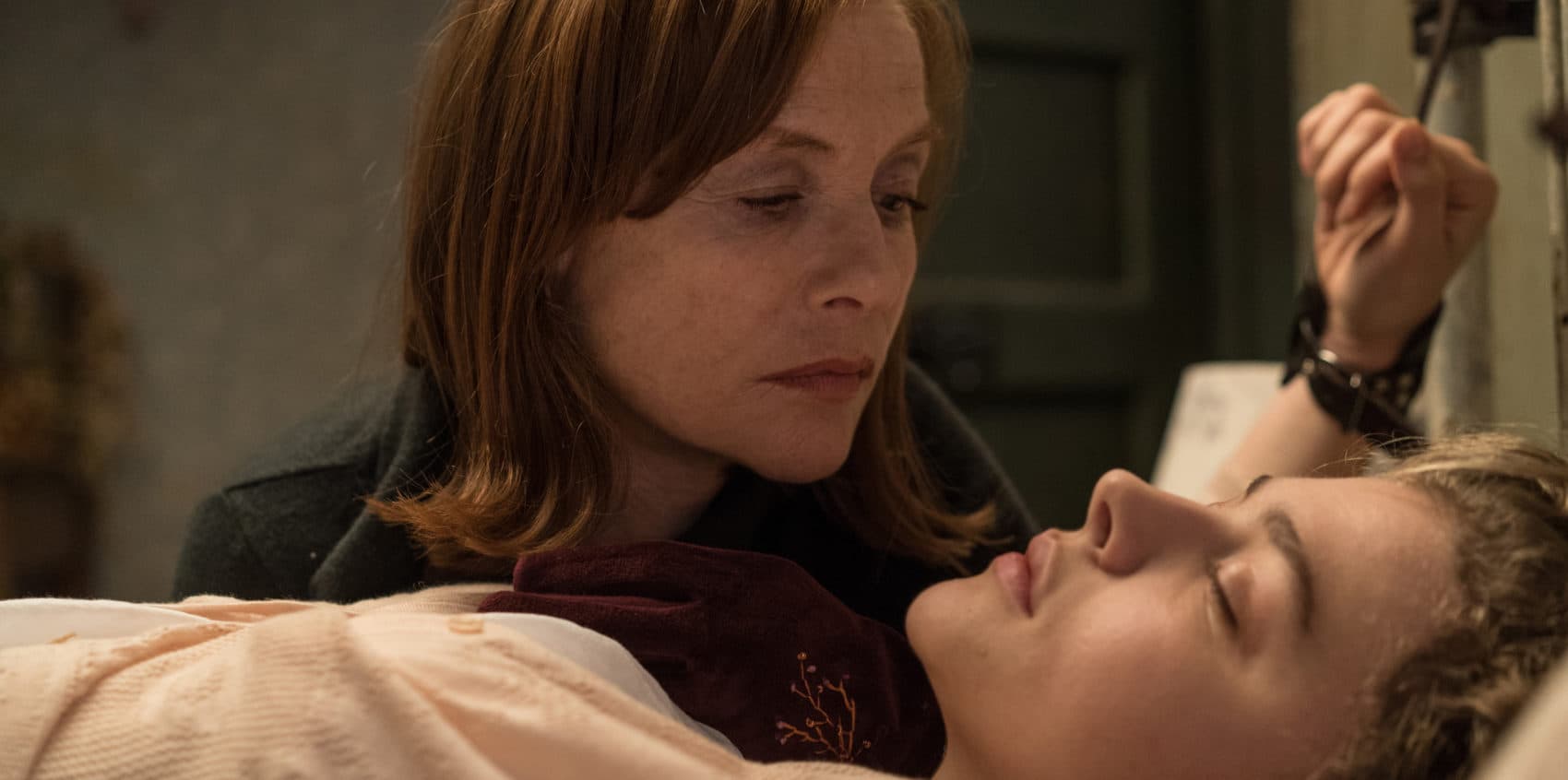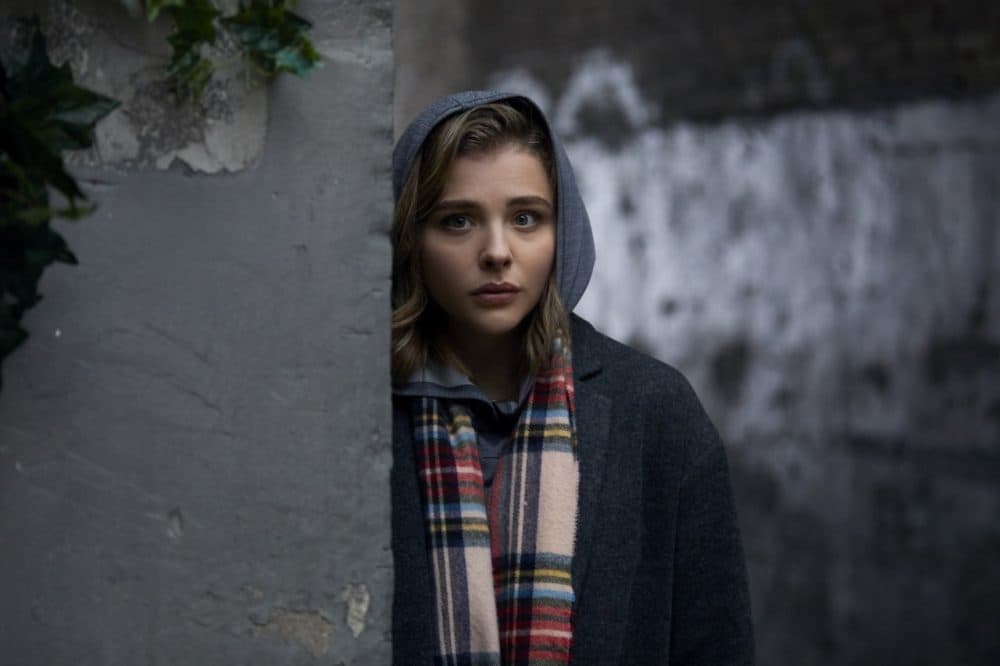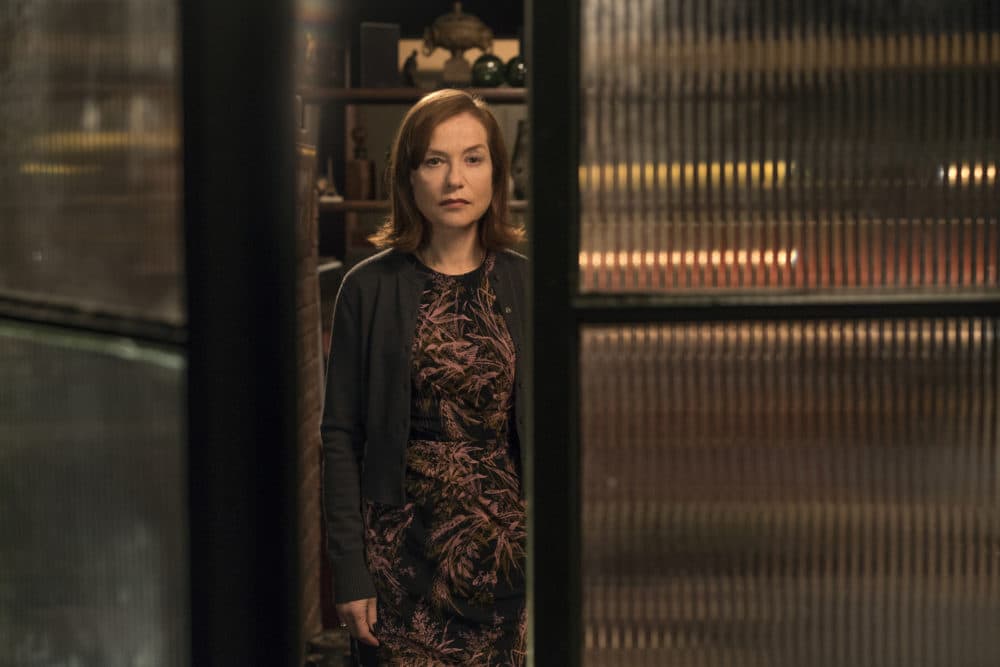Advertisement
Review
'Greta' Turns The Slasher Stalker Plot Into Delicious High Camp

The films of Irish writer-director Neil Jordan are all fairy tales at heart, though usually on the grimmer side of Grimm. Perhaps best known in this country for “The Crying Game” and “Interview with the Vampire,” Jordan can always be counted on for a tricky mix of literary sophistication and vulgar delights, brought off with a thick atmosphere of sinister enchantment and the showman’s flair of a wily Irishman spinning a yarn that’s half-malarkey and twice as enjoyable for it.
“Greta” — his first film in eight years — has more malarkey than most. Built out from the bones of a Friday night slasher pic, the screenplay (credited to Jordan and Ray Wright, from a story by Wright) infuses its generic stalker plot with all sorts of wild and wooly weirdness, fashioning it into a high-camp showcase for international art-house treasure Isabelle Huppert.
She gives a gloriously nutzoid performance here, punctuating her placid demeanor with delicious flashes of mania. The movie is what the kids used to call a hoot.
But I’m getting ahead of myself. Chloë Grace Moretz stars as Frances, a timid Boston gal fresh out of school who’s just moved to big, scary New York City. She’s currently crashing with her ridiculously wealthy college roommate Erica (a very funny Maika Monroe) whose parents bought her a comically oversized SoHo loft for graduation. (In a visual gag designed to torment anyone who has ever endured Manhattan real estate woes, Frances rides her 10-speed bike around inside the apartment.)
One day Frances finds a forgotten handbag on the subway, and like a Good Samaritan looks inside for ID and sets about returning the purse to its rightful owner. (“This is New York,” Erica scolds. “You should have called the bomb squad.”) The bag belongs to Huppert’s Greta, a lonely widow living in a cluttered apartment lined with overgrown ivy.
This highfalutin’ French version of Eleanor Rigby has been longing for a friend like Frances, and the two take to one another almost instantly — though attentive viewers might already be wondering about that muffled pounding coming from the wall behind Greta’s piano. “Construction,” she claims.

It’s not exactly a surprise where all of this is headed, so credit “Greta” for getting down to business right away and dropping a big reveal most movies would save for the end of the second act somewhere around the 30-minute mark. It feels like Jordan wants to get all the pesky plot stuff squared away as quickly as possible, so he can concentrate on having Huppert terrorize young Moretz in increasingly baroque fashion as the movie jumps the genre rails into bonkersville.
Jordan and cinematographer Seamus McGarvey conjure a collection of gorgeously evocative images. Moretz has the face of a cherub in a church painting, and maybe the most startlingly beautiful shot finds her crying at the movies with her eyes hidden behind 3D glasses, a vision of sorrowful kitsch.
As “Greta” gets kookier the visuals become more vividly expressionistic — Huppert’s shadow stretching long across the length of the living room floor like the wicked queen in Disney’s “Sleeping Beauty” while Moretz dons a little red riding hoodie.
Advertisement
“Greta” is a feast to look at and pretty much a riot to watch, taking fiendish delight in the story’s inherent predictability by piling one fake-out on top of one another. There’s a dream within a dream sequence here that employs the same audience-taunting tactics as Brian De Palma’s “Raising Cain,” and it became unfortunately clear during the screening I attended that not everyone in the crowd was in on the joke.
The director got into a bit of trouble and seemed to be banished for a little while after the calamitous reception of his last Hollywood picture, 2007’s “The Brave One” — a fascinatingly misguided attempt to remake “Death Wish” with Jodie Foster as an NPR talk show host in the Charles Bronson role. It’s a deeply weird movie that felt mostly like a semiotic exorcism for its star’s complicated history of portraying victimized women, while also trying to work as a trashy fantasy for the four people in the world who wanted to watch Terry Gross gun down rapists.
I’m relieved to report that “Greta” does not take itself nearly as seriously, while still carrying over Jordan’s knack for making New York City look like a forest primeval. (Everyone in his movies always seem to be on their way to grandma’s house.)

The nutty pleasures of the film’s final act come primarily courtesy of Huppert’s wackadoo flourishes — considering the internet’s affection for the actress, this will probably be the most meme-d movie of 2019 — and an extra level of irony for anyone who was traumatized by her career-defining performance in Michael Haneke’s “The Piano Teacher.”
Yet some of these scares still carry a Freudian kick, like a child’s toy chest re-purposed as an instrument of torture or the sinister properties of stuffed animals. Meanwhile, baking gingerbread cookies hasn’t been so perilous since the days of Hansel and Gretel.
“Greta” is Jordan’s most gonzo fairy tale since 1999’s unfairly derided “In Dreams,” and in Huppert he’s found his ideal Big Bad Wolf.
